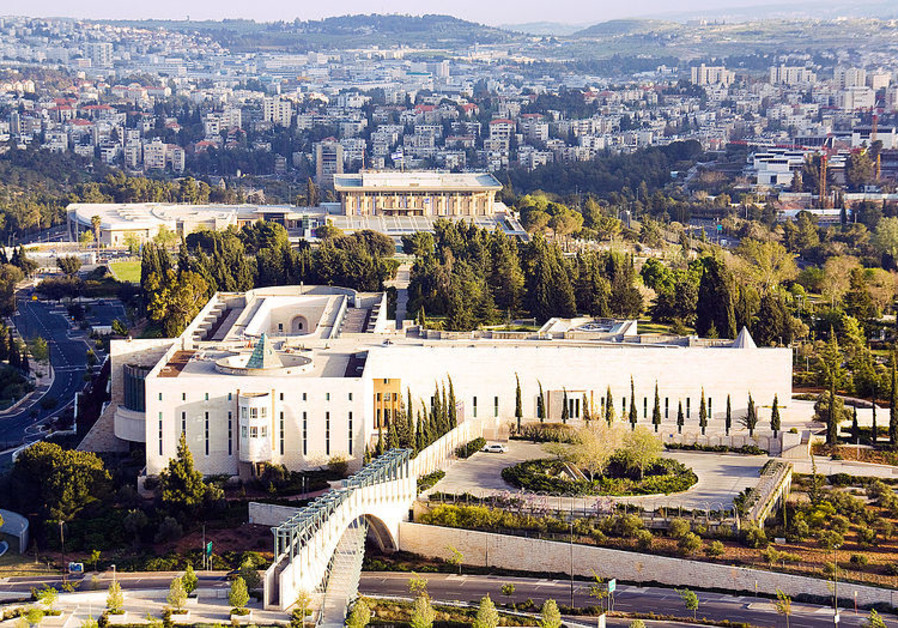The court’s fight with the coalition over the state’s policy for African migrants has precipitated the latest push to circumscribe the court’s powers.
Supreme Court President Esther Hayut is set to declare on Sunday that Israel cannot maintain the rule of law and democracy if the court’s judicial review powers are cut off, according to a statement released by the court.
Prime Minister Benjamin Netanyahu and the coalition appear to be moving forward with several initiatives to circumscribe the Supreme Court’s powers.
“Most of all, for us these values give voice to the principle of the rule of law. An outline of this principle is that everyone is equal before the law. Additional foundational principles which manifest our system of law and democracy are: recognition of the constitutional status of the freedoms of man and maintaining judicial review,” say Hayut’s remarks.
The remarks also note that judicial review “plays an important role in the apparatus of checks, balances and brakes designed to defend these freedoms.”
Hayut will speak later in the day and intends to say that many judicial decisions, at first glance, are a point of division.
Inherent in the social and legal divides that make up the country’s social fabric is that – at first glance – not all legal contests have compromises, and inevitably there are sometimes winners and losers, say her remarks.
However, she will say that using a longer-term vision, the courts unite all the differing sectors as they provide one fair way for all sides to be heard and judged.
This can unite and give pride to all sectors in education and identity as supporting Israel as the region’s sole democracy, the transcript says.
Hayut’s prepared remarks did not explicitly address the court’s fight with the government over African migrant policy which has precipitated the latest push to circumscribe the court’s powers.
While the court has not issued a final ruling on current petition’s before it, all indications are that it is prepared to declare the state’s migrant policy illegal once again to the extent that any migrants would be deported to Uganda against their will or that the state would extensively detain migrants who refuse deportation and whose refugee status has not been determined.
The coalition is united behind the idea of trying to deport as many migrants as possible to Uganda and to detain those who refuse deportation in order to press them to leave.
Currently, the government is entertaining several proposals for circumscribing the court’s judicial review powers – all of which are opposed by Attorney-General Avichai Mandelblit – but some of which may be able to garner a majority in the Knesset.
Sources close to Mandelblit indicated that while he opposes some of the ideas to restrict the powers of the Supreme Court and does not endorse any of them, if the government decides to go down that road anyway, he noted that the Neeman Commission had suggested a minimum of a 70 Knesset vote override. Further, the indication is that he believes it is critical that the details of any such law be negotiated closely with the judicial branch and that the government fully understands all of the details and implications of what they are considering. Sources understand that this position was accepted and has been reflected in the decision to hold ongoing meetings on the issue.




It is astonishing that a country which claims to be the only democracy in the M.E. allows itself to be dictated to by a handful of self-elected people. This is only slightly better than the regimes in the neighboring countries. It is, of course, important that the supreme court take part in the judicial process at the level of avoiding a miscarriage of justice, but what this group of individuals does is the cause miscarriages of justice at every level by dealing with issues brought up by people who only claim to represent plaintiffs. That the supreme court even listens to these people is affront to every citizen of the country.
the supreme court should be the final court of appeal, or stick to parking tickets. supreme court judges should be selected by a committee headed by the p.m then investigated/interviewed by a committee. everything going back to barak, a. should be reviewed
The oposite is true. It is the Supreme Court has its own agenda and often oposes the will of the people as expressed by the elected Knesset.
Strange unelected judges telling the government what do to or not to based on their own views not the laws passed by the elected representatives of the people seems undemocratic to me.
Israel needs to add to its basic laws a seperation of powers act what the government, parliament and courts are allowed to do or not to do. Since saying Israel should get a complete constitution which would include such a clause is probably at this point in time just wishful thinking.